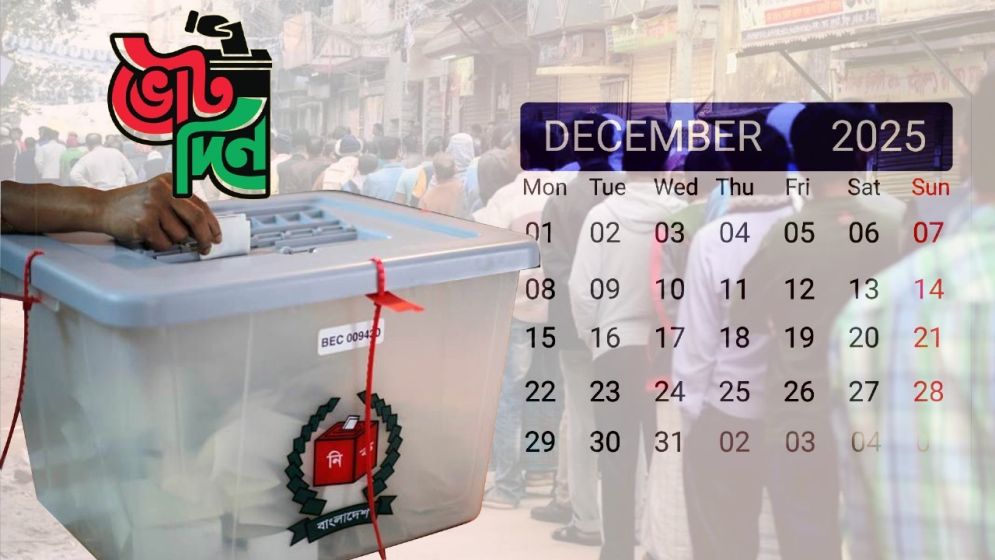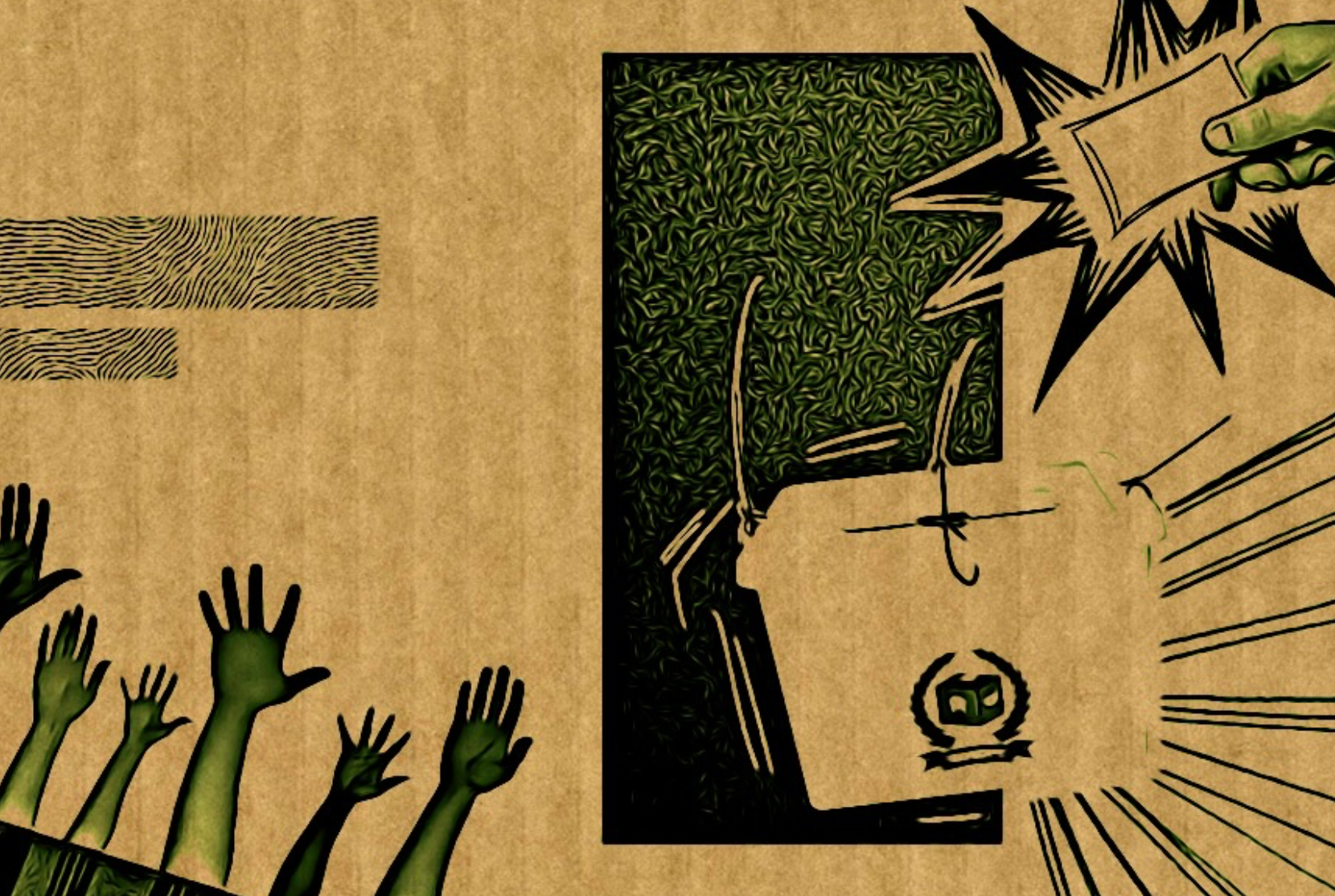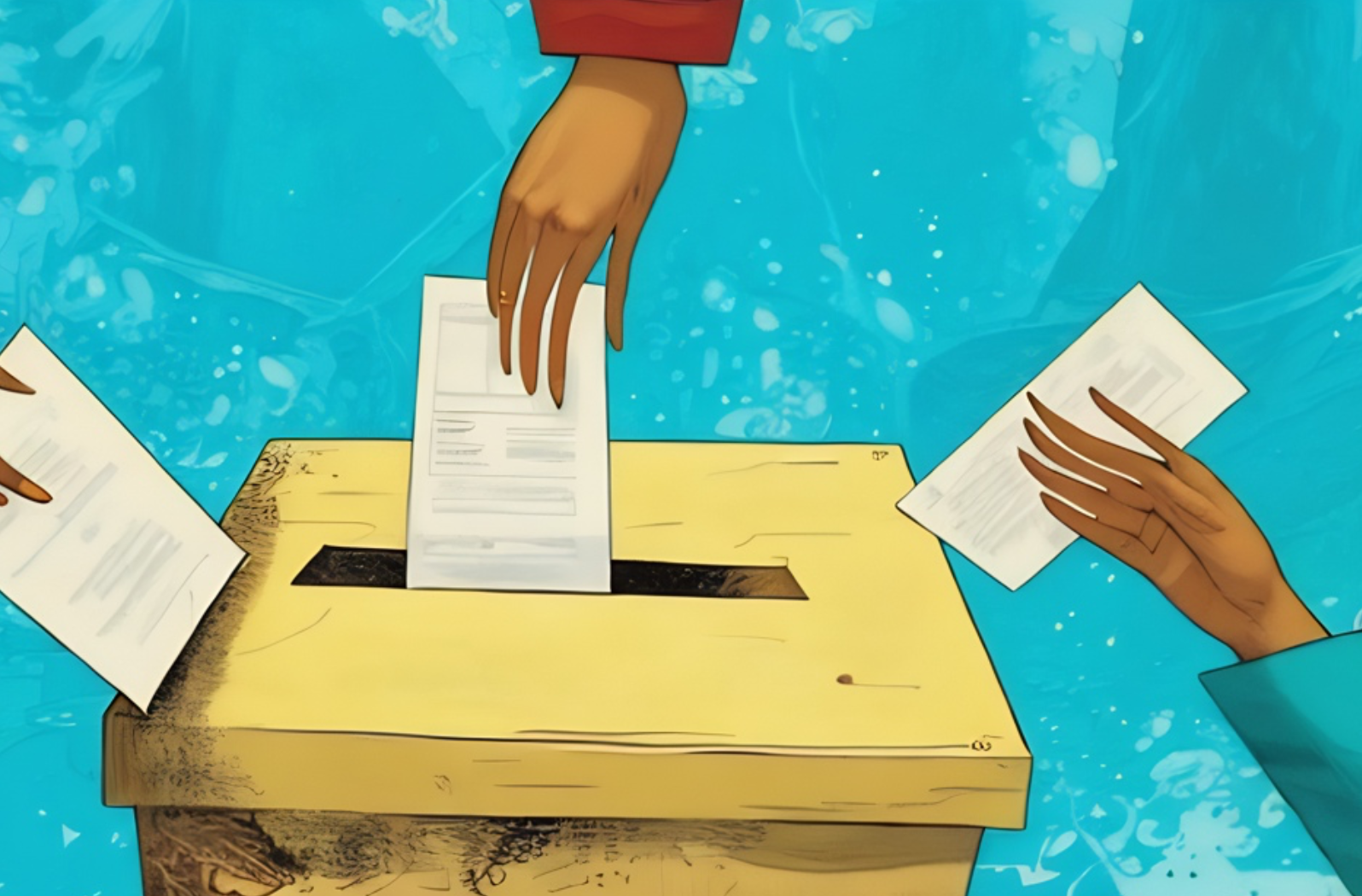An April election will be a democratic misstep for Bangladesh

Democracy is not a matter of marking ballots every few years–it’s a lived system of accountability, legitimacy, and inclusion. Elections are promises and when those promises are broken in disregard of public context, they stop being democratic.
In Bangladesh, that rupture is now dangerously near.
After years of democratic disillusionment, the people of Bangladesh were beginning to imagine a fair, timely, participatory national election by December 2025.
That hope was upended last week, when the interim government announced that elections would instead be held in April 2026–four months later and far removed from both political consensus and public convenience.
Political scientist Arend Lijphart once warned that democracy demands more than form–it requires function. Real democracy amplifies participation and enhances representativeness.
The April timeline fails on both counts. It ignores not only the country’s electoral fatigue, but the very calendar of its public life.
April in Bangladesh is a logistical and cultural minefield. The holy month of Ramadan ends just days before the proposed election window–rendering campaign activity both socially constrained and physically demanding in a season already defined by high temperatures, early monsoon storms, and the nor’westers.
In such a climate, literally and figuratively, public participation is more burden than choice.
More critically, April collides with the country’s academic calendar. National exams like the SSC and HSC dominate this period. Schools that double as polling stations are closed to politics.
Families are preoccupied with futures measured in marks and admissions rather than manifestos and ballots. As Emile Durkheim argued, institutions thrive only when they move in rhythm with the people. An April election is thus a rupture rather than a rhythm.
Let’s not forget: an interim government is not a sovereign one. It is a custodian, tasked with restoring–not redefining–democratic processes. Its legitimacy lies in consensus.
Yet the decision to push elections to April came without consultation, without explanation, and against the near-unanimous objections of political parties, civil society, and voters themselves.

Breeching of public trust?
Nobel laureate Amartya Sen once wrote that the vitality of democracy lies in its “dialogic capabilities”--its ability to listen, respond, and course-correct. So far, the interim government has shown none of these virtues. It has chosen opacity over openness, command over conversation.
December has long been the natural rhythm for elections in Bangladesh. It is not just a matter of logistics–though the mild weather, academic recess, and relative calm in the agricultural calendar make it ideal.
December is the country’s month of liberation, a time when national memory and civic aspiration converge. Elections held then feel not only timely but symbolically profound–a political renewal in a season already steeped in collective purpose.
Political scientist Samuel Huntington once noted that democratic consolidation is as much about perception as procedure. When civic rituals align with national symbols, legitimacy deepens.
A December election would reinforce this connection, enabling broad-based participation, open campaigning, and vibrant civic discourse. In contrast, an April timeline stifles all three.
Campaigns would struggle against environmental hazards and cultural constraints. Voter turnout would almost certainly decline–due to structural exclusion.
But symbolism is only one layer. The consequences of an April election are also administrative. A new government formed in late April would face the impossible task of preparing a national budget in just weeks, ahead of the June fiscal deadline.
In a fragile, post-pandemic economy marked by inflation, foreign debt, and banking instability, rushed budget-making isn’t just irresponsible—it’s dangerous.
Nobel laureate Joseph Stiglitz has warned against exactly this kind of fiscal haste. Poorly timed transitions invite elite capture, misaligned spending priorities, and eroded public trust.
Bangladesh cannot afford to enter a critical budget cycle led by a government still finding its footing.

A responsible solution
Yes, the interim government has the legal leeway to set election dates. But moral legitimacy cannot be legislated–it must be earned. And public sentiment on this matter is unequivocal: a December election is the will of the people.
The question is: What is to be gained by delaying elections until April? What transformation is expected to occur in the next ten months that has failed to materialize in the last ten?
The silence on these points speaks volumes–and none of it is reassuring.
It must be understood that Bangladesh is not suffering from a lack of political voices. It suffers from the absence of a process that allows those voices to be heard, reconciled, and reflected in governance.
By insisting on an April election, the interim government risks orchestrating a democratic performance where most instruments are muted, and the audience is already walking out.
Public trust is not an infinite resource–it is fragile, and once broken, it rarely returns intact. The history of democratic transitions, from post-junta Chile to post-revolution Tunisia, underscores a central truth: legitimacy is built through consent.
Elections imposed without consensus may check procedural boxes, but they hollow out the very idea they claim to uphold.
The fact is, the call for a December election is not a slogan of the opposition–it is the plea of a population exhausted by exclusion and hungry for inclusion. December offers alignment: with history, with practicality, and with public will. April offers only disruption.
If the interim government truly sees itself as a steward of democracy and not just a placeholder for power, it must abandon the defensive posture and embrace a generative one. That means empathy. It means accountability. It means listening.
The window for redemption is still open–but it is closing fast. Dialogue must begin. And the election must return to its rightful place on the national calendar: December.
Only then can Bangladesh take a meaningful step toward reclaiming the promise of its democracy–not as a ritual, but as a lived reality.
—
Writer- H. M. Nazmul Alam is an Academic, Journalist, and Political Analyst based in Dhaka, Bangladesh. He can be reached at [email protected]

